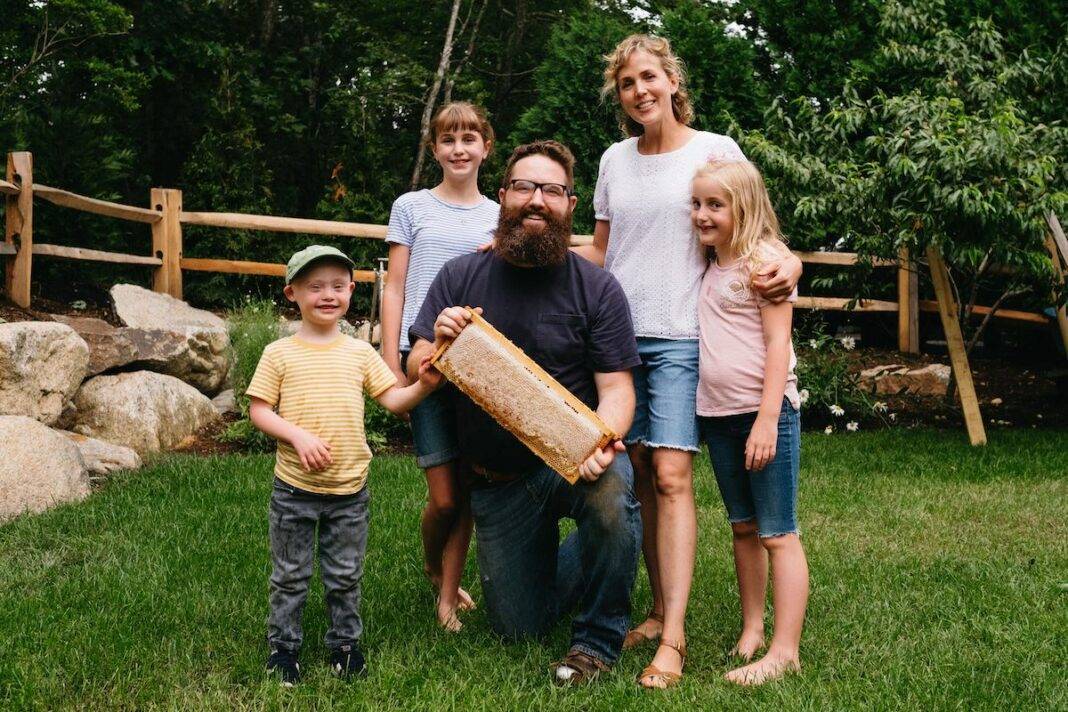This family operation is getting quite the buzz.
Brent Brown has found the perfect way to realize his dreams of farming the land. Rather than raising crops or animals, Brown tends much smaller livestock — honeybees.
“I’ve always dreamt of having a big farm and growing all kinds of vegetables,” says Brown, who eventually had to accept the reality that the price of real estate on Martha’s Vineyard made that dream prohibitive. Instead, he decided to farm bees. “It’s a happy medium,” he says. “You don’t have to have a lot of property or even have your own property at all. They fly wherever they need to go.”
Currently Brown operates a small apiary on the grounds of the Norton Farm on the Vineyard Haven/Edgartown Road. There he has set up a number of hives from which he extracts honey to sell at the farm’s produce and baked goods store.
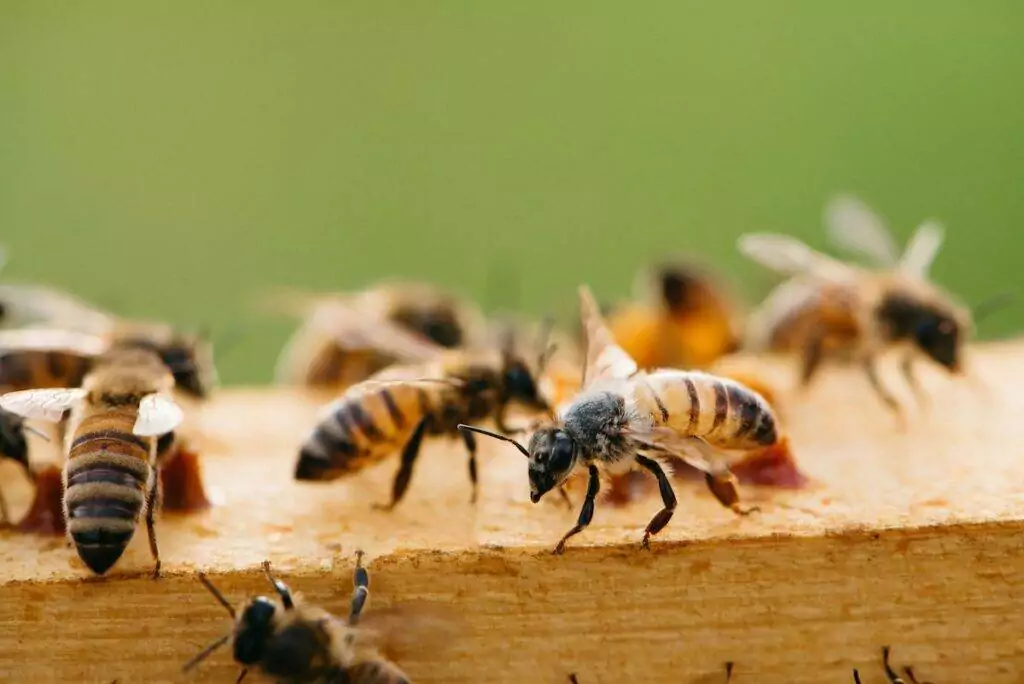
Ginny Bee honey is all natural, unlike commercial honey which can contain glucose and fructose, among other additives and, best of all, it’s all the product of Island flowers. Brown notes that aside from giving you some immunity to local types of pollen, buying Vineyard honey helps sustain our local environment.
“Eating local honey is supporting your local beekeeper and also helping support the local bee population, which is in decline worldwide because of habitat loss,” says Brown. “You’re supporting the honeybees being out there and cross pollinating and producing our food. Bees do a wonderful job of pollinating our crops.” It’s said that one of every three bites of food is brought to you by honeybees.
“Eating local honey is supporting your local beekeeper and also helping support the local bee population, which is in decline worldwide because of habitat loss,” says Brent Brown.
While he takes his beekeeping very seriously, Brown notes that he’s able to work full time as project coordinator for Rosbeck Builders while pursuing his hobby after hours and on weekends. Aside from frequent hive inspections, the bulk of the work takes place in the spring and early summer months, when he can sustainably collect the honey.
“I only harvest honey from the bees in May, June and July,” says Brown. “What they make in the summer is excess. When the flowers are out again in the fall, I leave that honey in the hive for the bees to eat during the winter months. I’m very cautious not to take too much honey.”
Brown notes that not all honey producers are as scrupulous as he is. “There are plenty of beekeepers out there who will take every ounce of honey that the bees make and replace it with a sugar water solution. There’s a lot more to honey than sugar.”
“Bees do a wonderful job of pollinating our crops. It’s said that one of every three bites of food is brought to you by honeybees.”
Brown prioritizes maintaining large, healthy thriving colonies that will yield as much honey as possible, while keeping the Island’s bee population up. He notes that his hives house from 40,000 to 60,000 bees in the summer, with the population decreasing to around 10,000 in the winter (much like the Vineyard’s seasonal human population differential, but not as drastic).
Along with the Norton Farm hives (which number from 10 to 20 depending on the season), Brown also keeps bees on other properties around the Island but he doesn’t harvest the honey from these smaller hives, which need whatever they can produce.
It doesn’t take much in the way of equipment to harvest and process honey. Brown explains the extraction process: “I take home the wooden frames that the bees create the honeycomb on and I use a knife to cut off the wax. I put the frame in a spinner that uses centrifugal force to pull the honey from the frame. I filter it once and then bottle it. What you eat is straight honey, no additives.”
Born and raised in Colorado, Brown had never considered beekeeping as a hobby until after he moved to the Vineyard in 2016. “Seven years ago I decided to take the plunge. I purchased the equipment and the hives and watched a lot of YouTube videos.” Trial and error played a big part in Brown’s education. “Experience is a good teacher,” he says. “I learned from my mistakes.”
Brown credits his move to the Island as inspiration for his apiary aspirations. “I fell in love with nature and the beautiful landscaping and uncultivated areas all around us. I work in the office all day long. Beekeeping is a nice break for me. It gets me out in nature.”
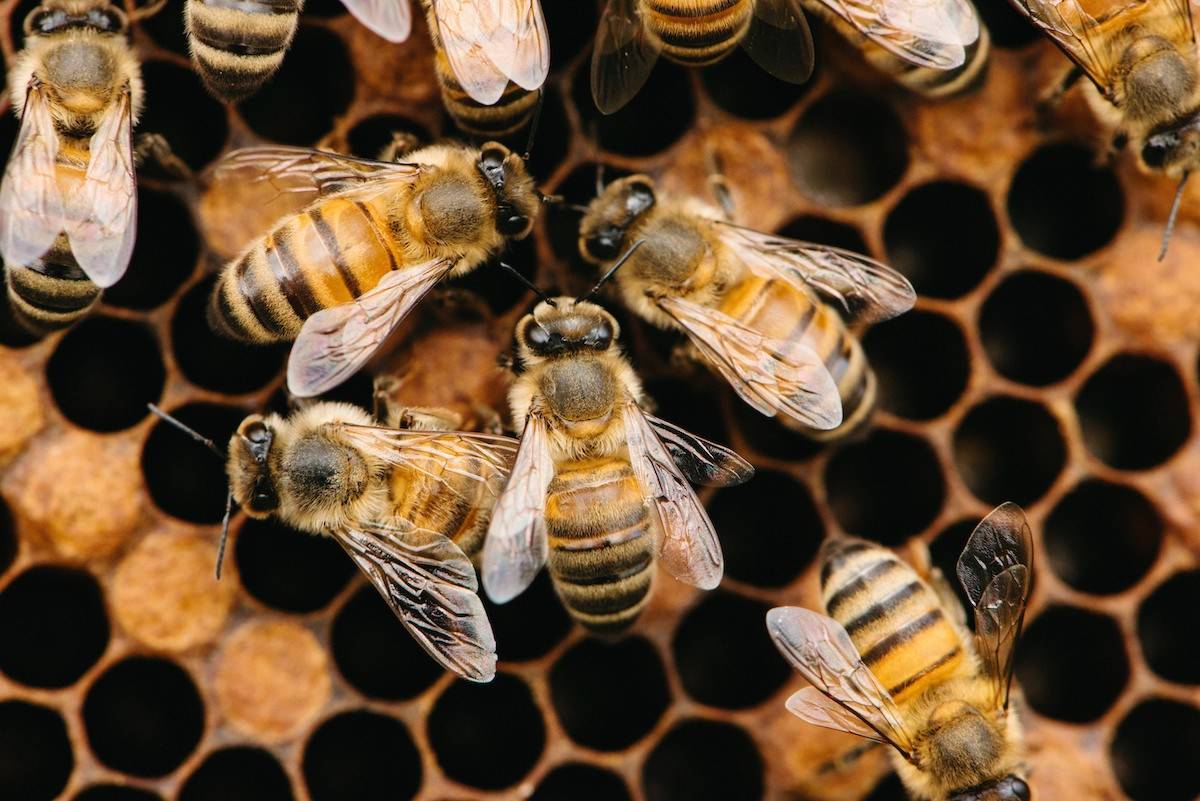
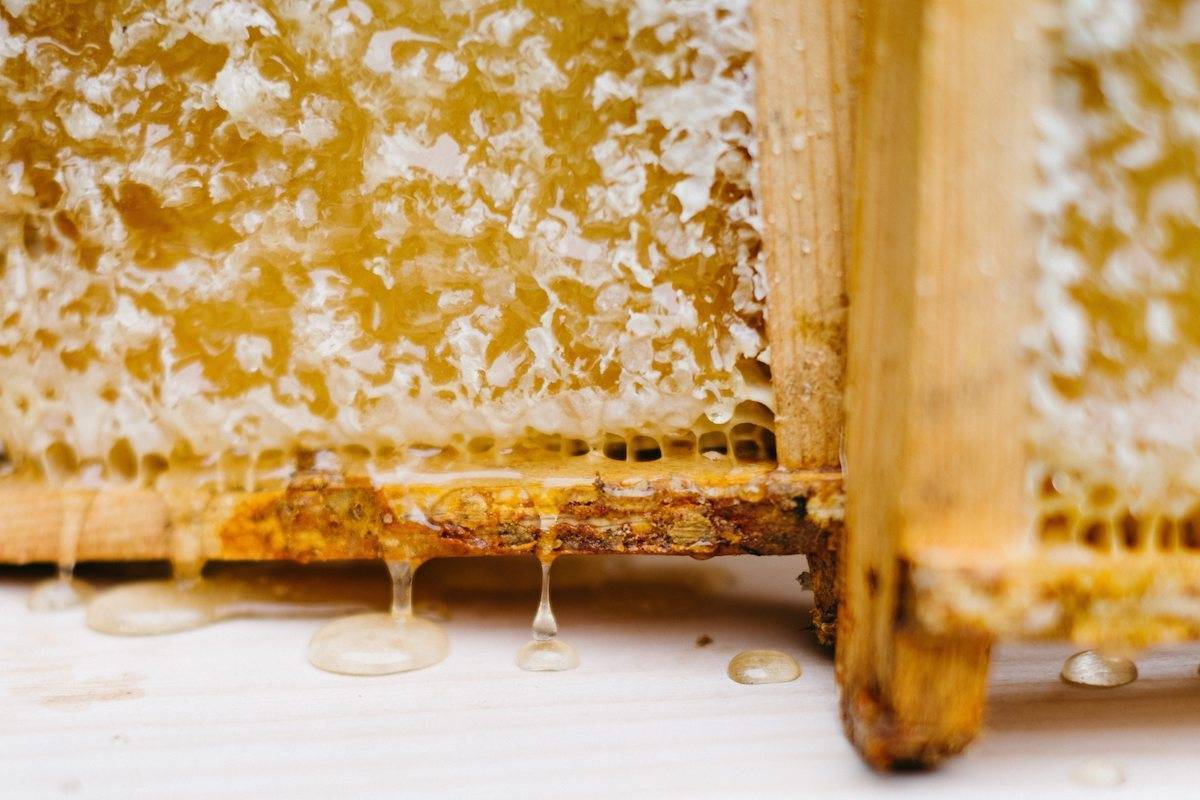
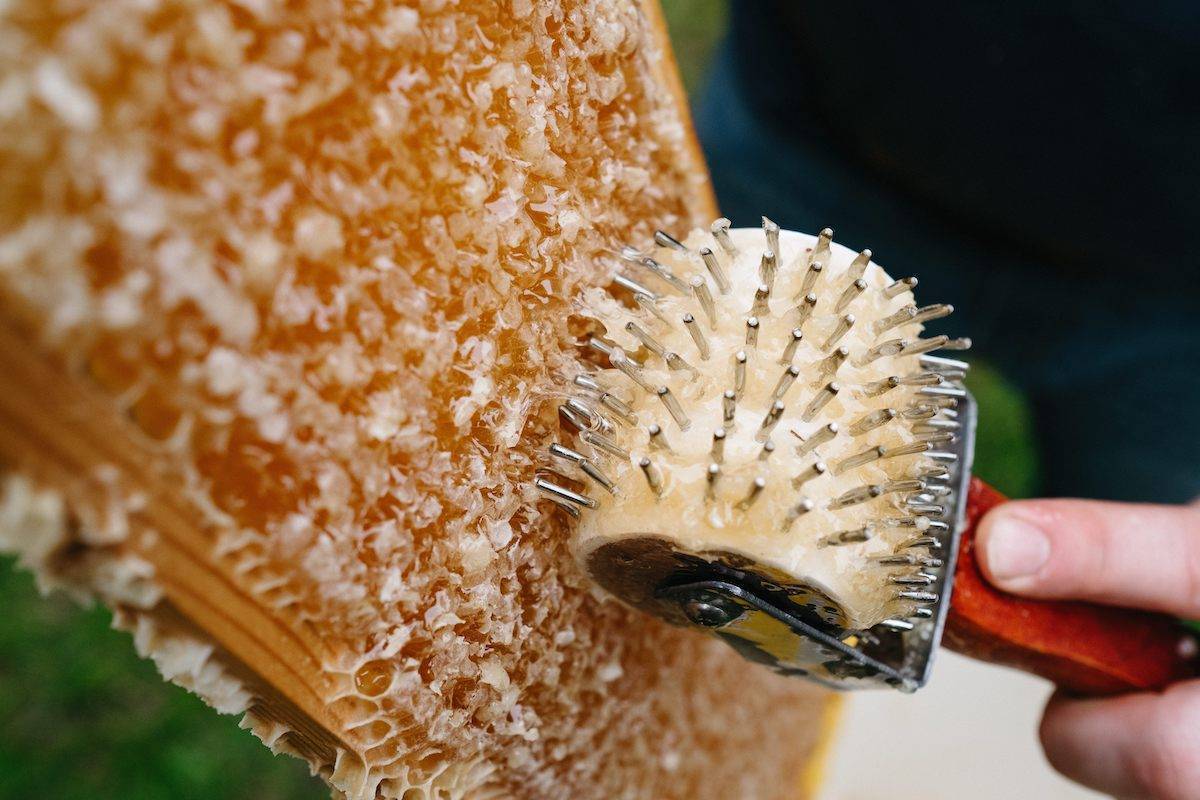
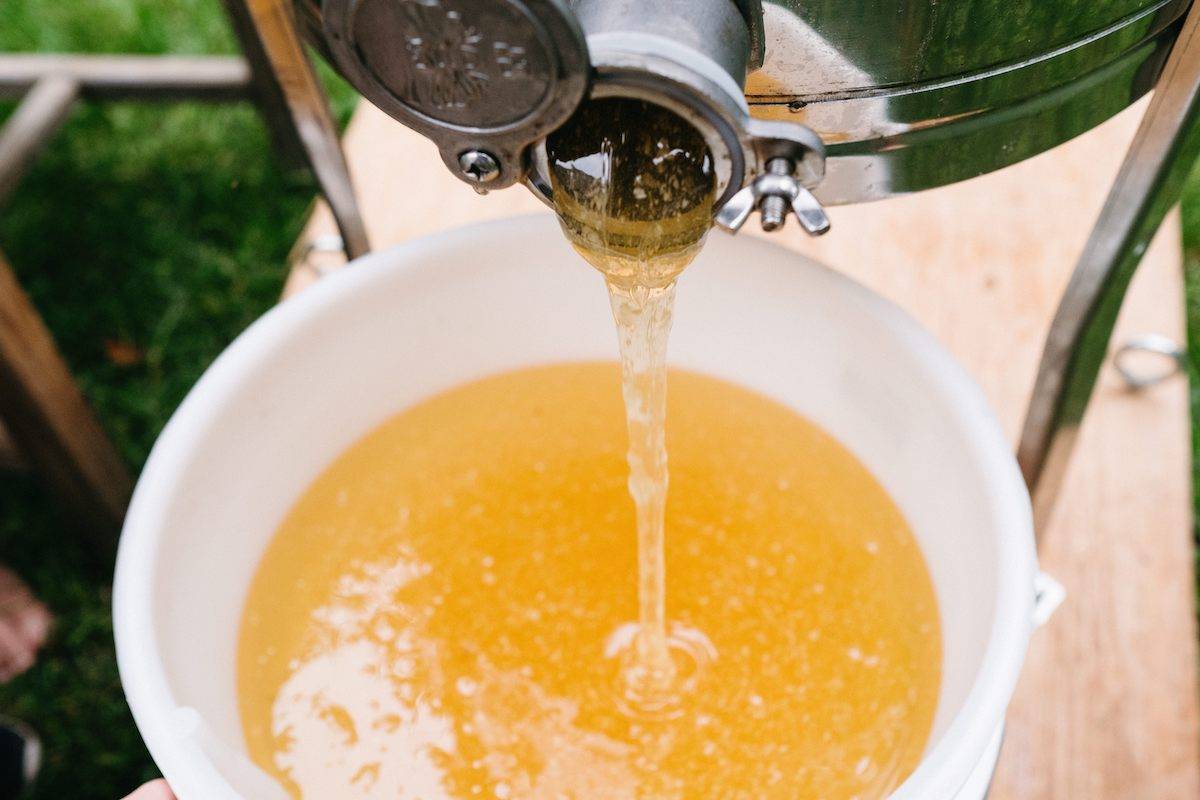
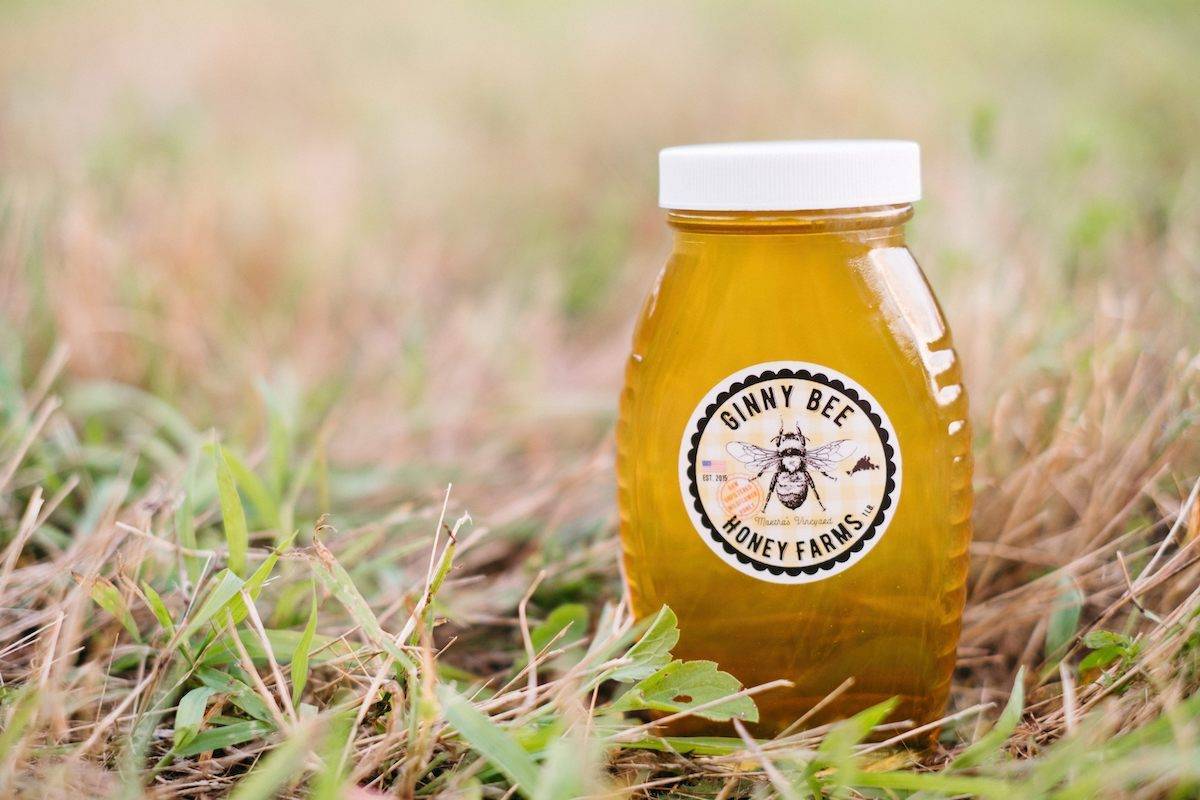
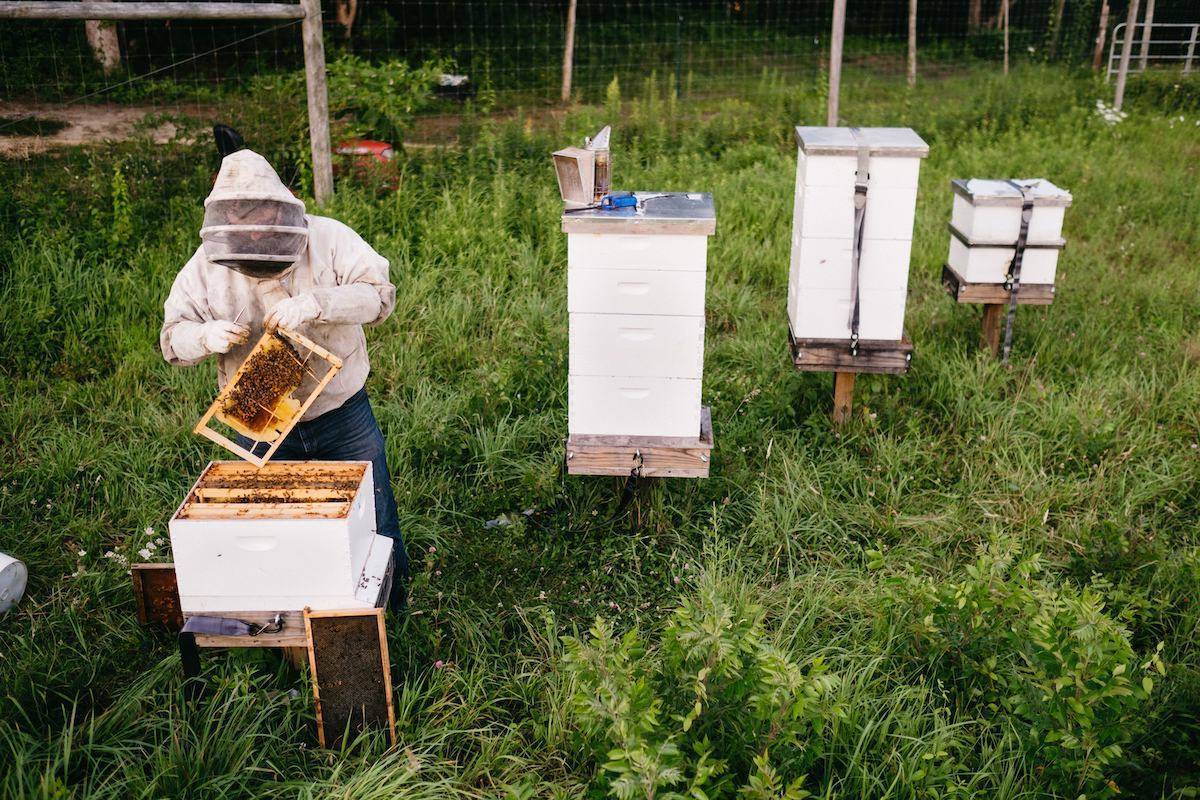
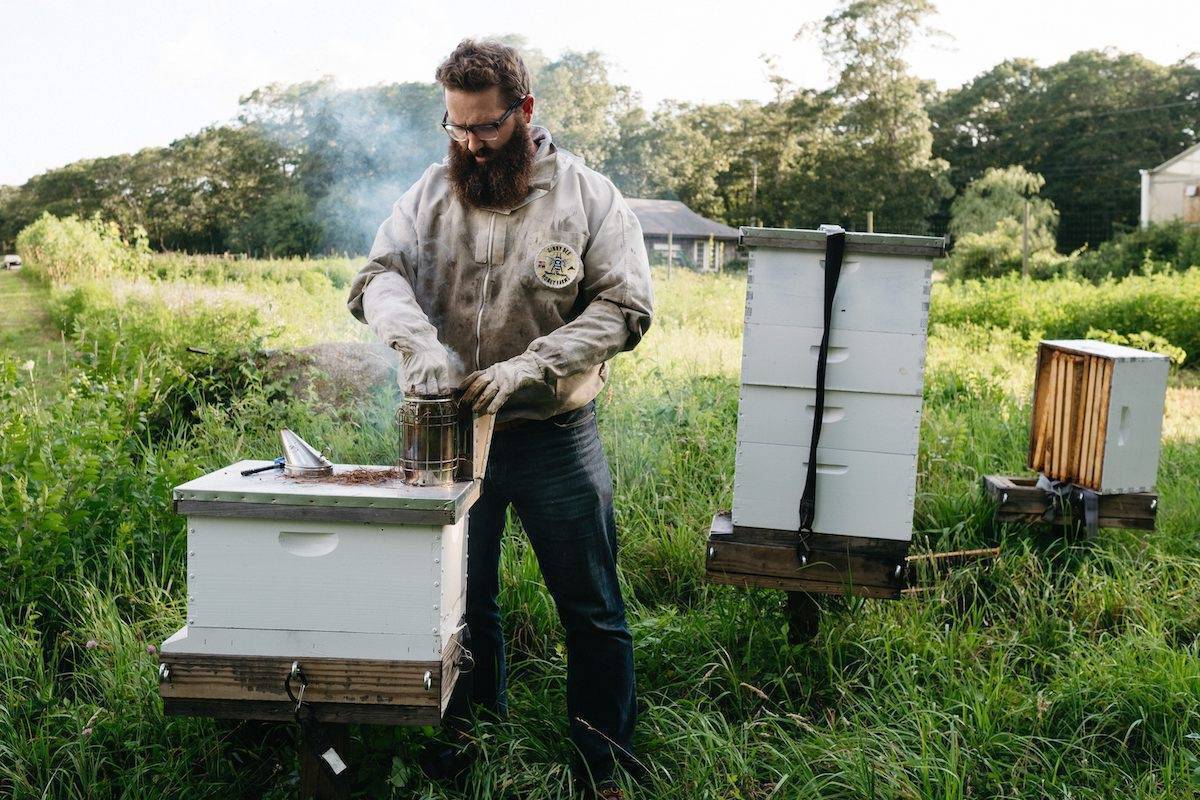
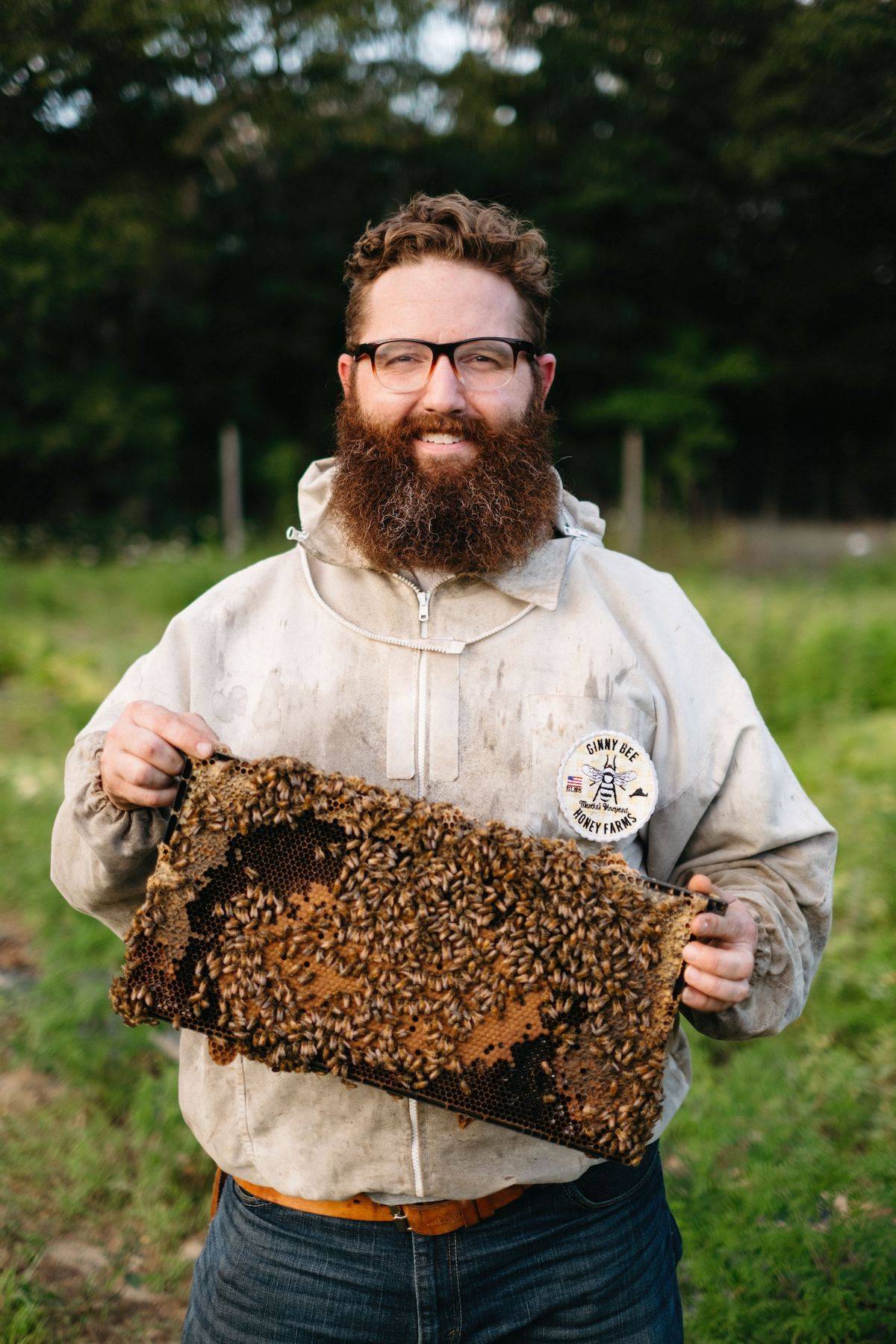
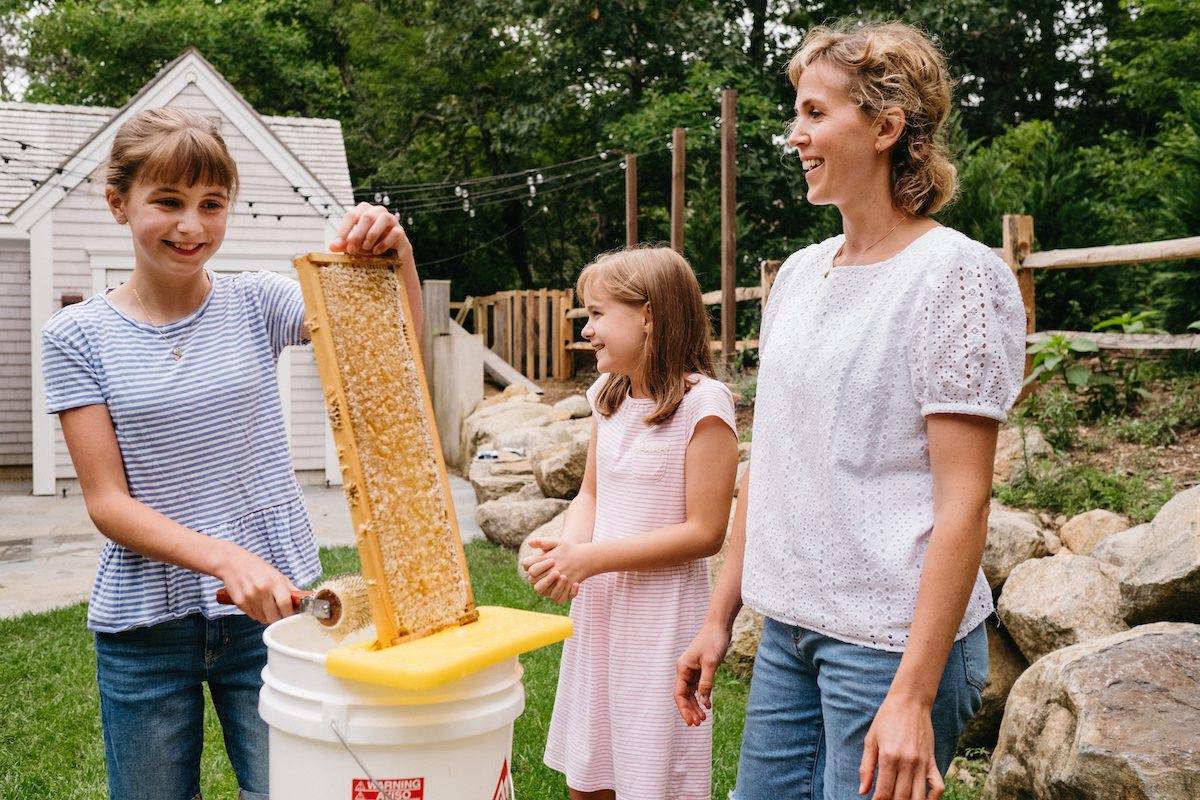
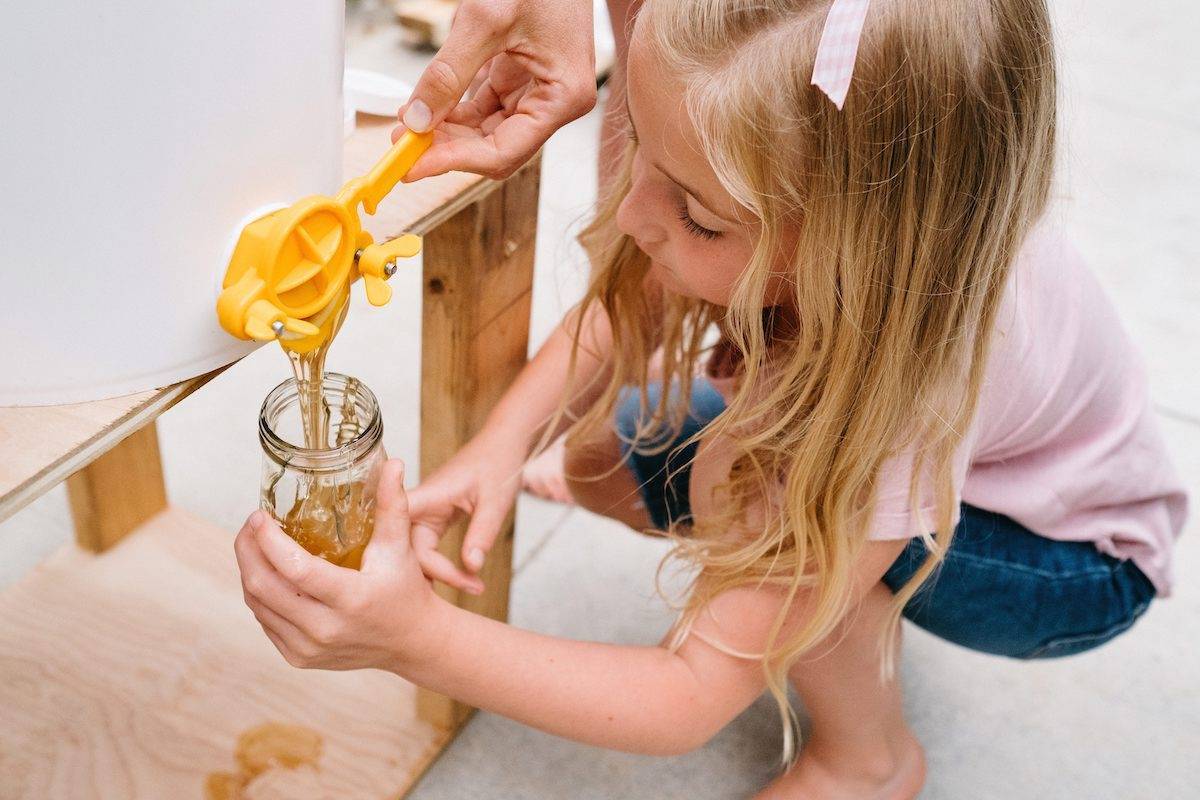
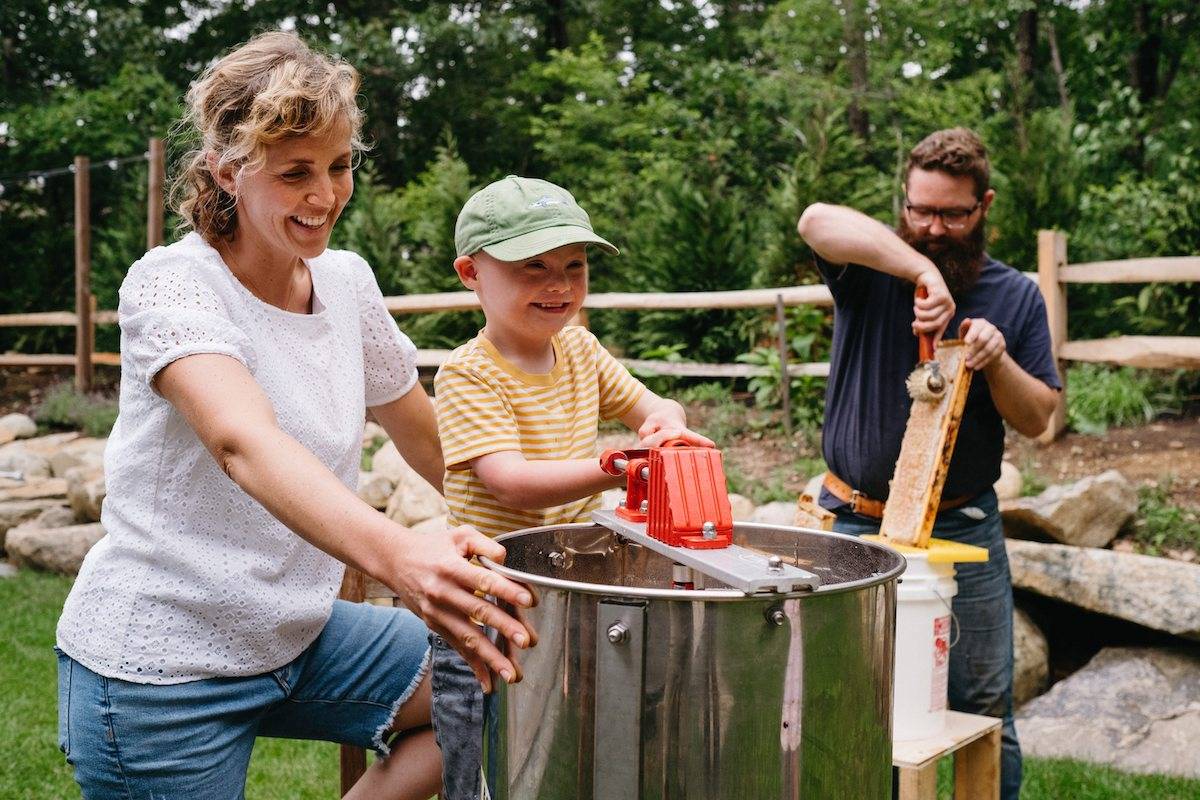
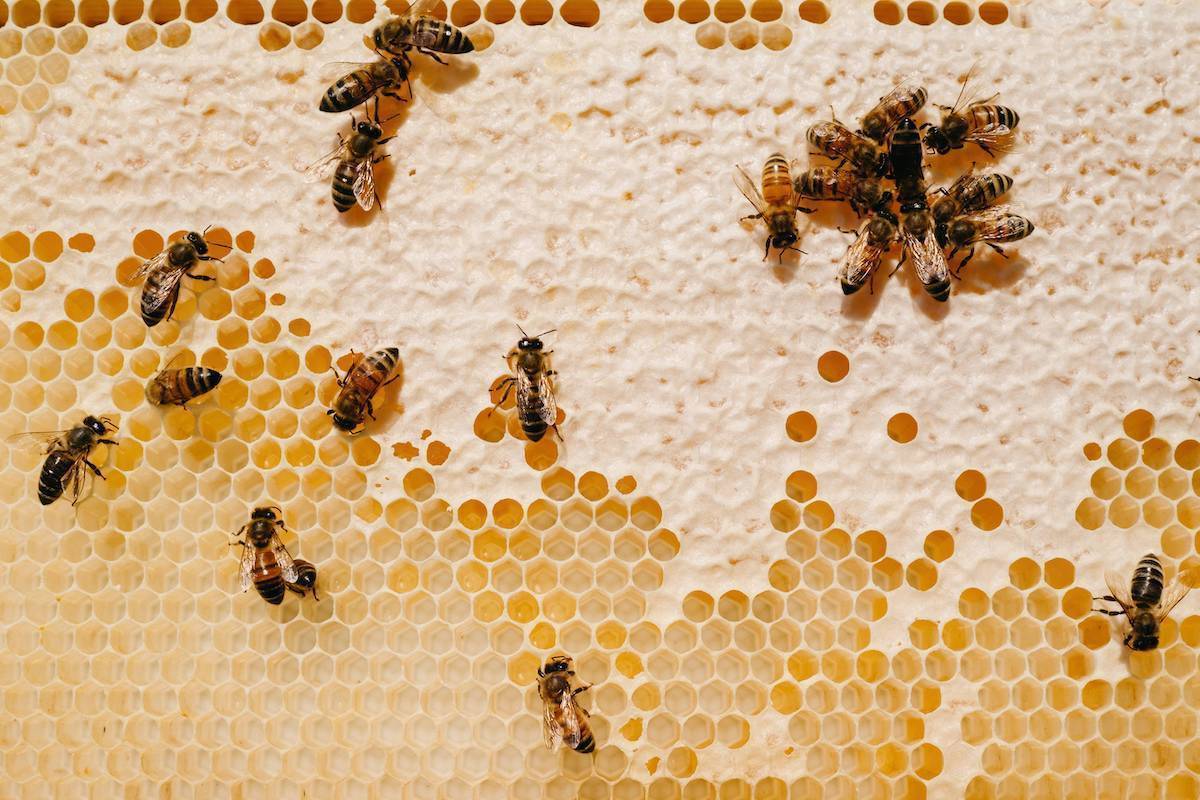
beekeeping after work and on spring
and early summer weekends. —Photos by Sheny Leon
Another incentive for Brown was finding a venture that he could share with his three children. “I really created it for my kids,” he says, “to help them learn about business and nature. Any profit we’re trying to save for college.”
The Brown kids – ages six, nine, and eleven – all help out with the bottling and preparation of the all-natural beeswax lip balm, which is also available at the Norton farm stand. Brown’s wife, Lisa, does all of the photography, among other things. “Everyone in the family has a little part in this,” says Brown.
He also makes it a part of his mission to educate others. During the summer months, Brown hosts tours of the Norton Farm apiary where he talks about the lifecycle of bees and their important role in the environment. Guests then don bee suits for a hive inspection. He will open up a hive so that visitors can see the inner workings and even hold a frame full of thousands of bees if they choose to. The tour concludes with a taste test comparison between Ginny Bee and commercially produced honey.
“In doing something they’ve never done before, people can better understand the process and maybe overcome some of the apprehension they have about honeybees,” says Brown. “Being in the apiary and finding out that the bee’s primary goal is to collect nectar and pollen goes a long way towards understanding the importance of bees in our ecological system.”
What You Can Do
As for encouraging others to take up beekeeping, Brown notes that it’s not something that one can experiment with and then give up on when the novelty has worn off. “It’s not like buying a bicycle and then putting it away when you’re over it,” he says. “You have a responsibility to a colony of living creatures.”
Instead, he has a suggestion for those who want to do their part in sustaining the Island bee population. “People can plant a variety of different types of flowers that bees are attracted to,” he says. (See Planting for Pollinators). “You should be aware of planting flowers that have blooms throughout the year. That way the bees will have something to constantly forage from. In the spring and summer the bees have plenty to choose from but, come September, it’s critical for them to build up their honey supply for the winter.”
If you really have your heart set on starting your own apiary, Brown has some practical advice. “It can be a great hobby as long as you do all your research first. But don’t do it for the cheap honey. It will be the most expensive pound of honey you’ve ever purchased.”

